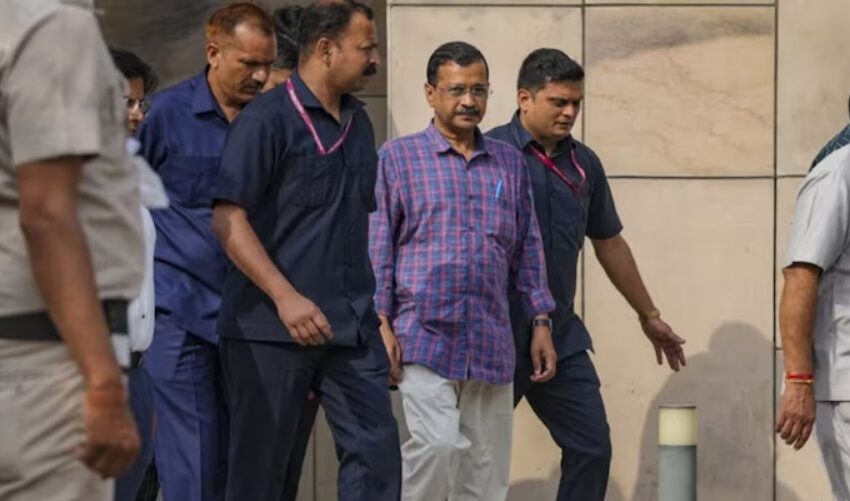
Will Arvind Kejriwal Secure Bail? Key Supreme Court Hearing on Delhi Excise Policy Today
Arvind Kejriwal is challenging the Delhi high court’s decision that upheld his arrest by CBI in the corruption case related to the alleged excise policy scam.
The Supreme Court is set to hear pleas on Thursday filed by Delhi chief minister Arvind Kejriwal seeking bail against his arrest by the Central Bureau of Investigation (CBI) in the now-scrapped excise policy case. Arvind Kejriwal is challenging the Delhi high court’s decision that upheld his arrest in the corruption case related to the alleged scam.
In the previous hearing on August 23, the Supreme Court granted the CBI one week to respond to one of the pleas.
Meanwhile, on Tuesday, the Delhi court issued summons to Arvind Kejriwal and other accused in the case after considering the CBI’s “fourth supplementary chargesheet” related to the excise policy case. The court also extended Arvind Kejriwal’s judicial custody until September 11. Special judge Kaveri Baweja ordered that the accused be presented before the court on September 11.
CBI’s fourth supplementary charge sheet
The CBI filed its fourth supplementary charge sheet on July 30, naming Arvind Kejriwal, Satyendar Jain, Amit Arora, Vinod Chauhan, Ashish Mathur, and P Sarath Reddy as accused in the case. According to the CBI, Kejriwal is described as “one of the main conspirators” and was allegedly in contact with the South group, which included K Kavitha, Raghav Magunta, Arun Pillai, Butchibabu Gorantla, P Sarath Reddy, Abhishek Boinpally, and Benoy Babu.
The charge sheet further claims that the kickback funds were used “as per Kejriwal’s instructions” since the money was routed into the Aam Aadmi Party’s (AAP) funds. Additionally, it was alleged that Kejriwal promised ₹90 lakh to each candidate in 40 constituencies in Goa.
Arvind Kejriwal’s arrest and excise policy case
Arvind Kejriwal was first arrested by the Enforcement Directorate (ED) on March 21 in connection with the alleged excise policy case, shortly after the Delhi High Court denied his plea for interim protection from arrest. On July 12, the Supreme Court granted him interim bail in the ED case, but he remains in jail due to his arrest by the CBI.
Kejriwal was taken into CBI custody on June 26 from the Rouse Avenue Court in Delhi and was subsequently sent to judicial custody on June 29.
The Delhi government introduced an excise policy in 2021-22 aimed at revitalising the city’s declining liquor business by replacing the volume-based sales regime with a license fee model for traders, promising modern stores without metal grilles to enhance the customer experience.
However, the policy was scrapped after Delhi lieutenant governor VK Saxena called for a CBI investigation, alleging irregularities. According to the ED, Kejriwal’s AAP allegedly received kickbacks amounting to ₹100 crore to finalise the excise policy.


